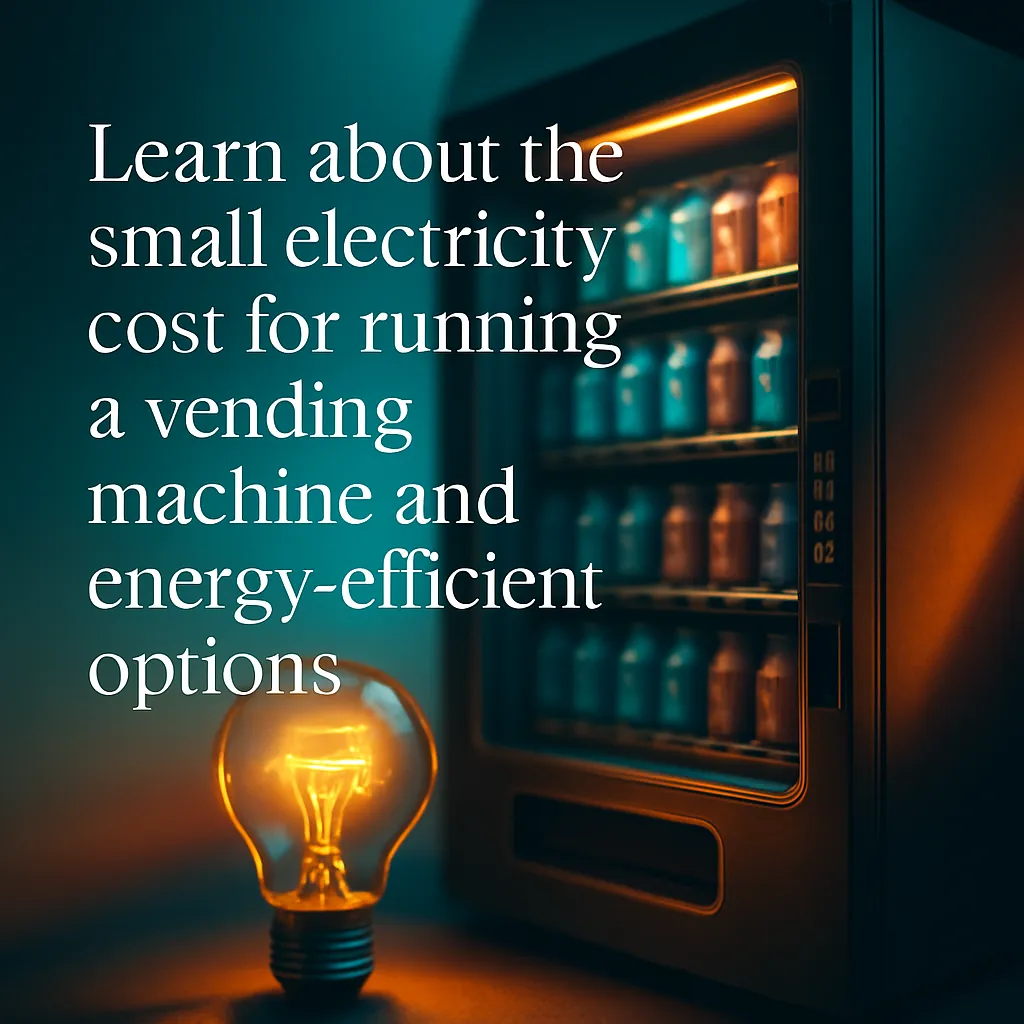Do Businesses Pay for Vending Machine Electricity?
Learn about the small electricity cost for running a vending machine and energy-efficient options.
Back to Vending FAQs ResourcesLearn about the small electricity cost for running a vending machine and energy-efficient options.
Back to Vending FAQs ResourcesMost businesses hosting vending machines provide the electricity, but the consumption and associated costs are surprisingly low, especially with modern energy-efficient models.
![]() Newer machines feature low energy consumption
Newer machines feature low energy consumption
![]() Operating costs are typically negligible for host businesses
Operating costs are typically negligible for host businesses
![]() Many vending operators offer energy-efficient equipment
Many vending operators offer energy-efficient equipment

When a business decides to host a vending machine, a common question that arises is who covers the electricity cost. The standard practice in full-service vending agreements is for the hosting business to provide the electricity. However, it’s important to understand that the electricity consumption of modern vending machines is surprisingly low, making this a minimal expense for most organizations.
A typical modern vending machine uses between 2 to 6 kWh per day. To put this into perspective, many other common office appliances, like constantly running computers or breakroom microwaves, might consume similar or even higher amounts of daily energy. The overall impact on a business's utility bill is generally negligible, often just a few dollars a month per machine.
Several factors can influence a vending machine's power consumption:
Businesses looking to further reduce this already low cost can consider options like choosing machines with energy-efficient features. Many vending providers actively offer greener solutions. The peace of mind and convenience that a vending machine brings to employees and customers—offering snacks, beverages, and sometimes even fresh food—far outweighs the minimal electrical cost. Businesses gain a valuable amenity without significant financial burden. For insights into how other organizations manage facilities and vendor relationships, consider reading about vending services for office administrators.
The provision of power is a small trade-off for the substantial benefits. These machines boost morale, increase productivity by keeping employees on-site, and provide a convenient service for visitors. In some high-traffic locations, venues might even generate a small commission from vending sales, which could further offset any utility costs. Understanding vendor agreements, including terms like electricity provision, is crucial. You can learn more about how these agreements function here: How Vending Contracts Work.
Yes, in most full-service vending agreements, the business hosting the machine provides the electricity. However, the cost is generally very low.
A modern vending machine typically uses between 2 to 6 kilowatt-hours (kWh) per day, depending on its type, age, and features like refrigeration or lighting.
Factors include machine age, type (snack, drink, frozen), refrigeration efficiency, lighting type (LED vs. fluorescent), and ambient temperature of the location.
Absolutely. Many newer models are designed with energy-saving features like LED lighting, improved insulation, and sleep modes to reduce power usage.
No, for most businesses, the electricity cost for a single vending machine is minimal, often just a few dollars per month, making it a negligible expense compared to the convenience it offers.
While businesses typically supply power, some high-volume locations may negotiate a small commission that indirectly offsets utility costs. Direct negotiation for electricity cost is rare but possible depending on the vendor relationship.
Many modern AI vending coolers are designed with advanced energy-efficient components, often resulting in comparable or even lower electricity consumption than older traditional machines.
Opt for newer, Energy Star rated machines, ensure proper ventilation around the unit, and consider ambient-temperature appropriate placement to reduce cooling demands.
No, it's generally not common. The provision of electricity is a minimal overhead cost assumed by the host business in exchange for the amenity of having a vending machine on site.
A vending machine typically uses less electricity than many common office appliances such as copiers running all day, multiple desktop computers, or a constantly running microwave in a busy breakroom.